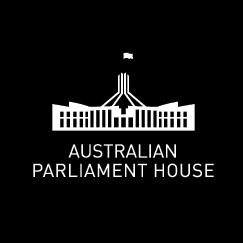 Both the houses of the Parliament of Australia, Senate and the House of Representatives, have turned down requests to have Hindu opening-prayer in one of their sessions.
Both the houses of the Parliament of Australia, Senate and the House of Representatives, have turned down requests to have Hindu opening-prayer in one of their sessions.
At the beginning of each sitting day, on taking the Chair, Senate President and Speaker of House of Representatives of Australian Parliament read Lord’s Prayer, a well-known prayer in Christianity; which has reportedly been the prayer since Australian Parliament came into existence in 1901.
Adherents of minority religions and non-believers, who had made a lot of contributions to Australia and continued to do so and paid their share of the taxes, thus felt left out by this monopoly on prayer. Not allowing prayers of minority religions in the Parliament seemed like efforts at belittling these faiths under government patronage; Zed, who is President of Universal Society of Hinduism, pointed out in a statement today.
Democratic governments should not be in the business of promoting one religion and excluding others and non-believers and thus infringing upon the human rights of minority religions and non-believers; Rajan Zed, who has opened both the United States Senate and US House of Representatives in Washington DC with Hindu prayers, emphasized.
Zed further said that Standing Orders handling the prayer in the Australian Senate and House of Representatives needed to be urgently changed as we were well into 21st century and Australia was much more religiously diverse now as compared to 1901, when Lord’s Prayer reportedly took hold in Parliament.
Rajan Zed’s offers to read Hindu prayer after the prescribed Lord’s Prayer; and Senate-President/House-Speaker reading the Hindu prayer supplied by Zed after the prescribed Lord’s Prayer; were also not accepted.
Zed suggested that it was time for the Australian Parliament to move to multi-faith opening prayers. Since Australian Parliament represented every Australian irrespective of religion/denomination/non-
Rajan Zed was of the view that existence of different religions was an evident symbol of God’s generosity and munificence. Australian Parliament should quest for a unity that hailed diversity.
The Australian Parliament, located in Canberra, consists of the Senate (76 members), House of Representatives (151 members), and the King (Charles III), represented in Australia by the Governor General. Its four main roles include making and changing federal laws, representing the people of Australia, providing a place where government is formed, keeping a check on the work of the government. Sue Lines is Senate President and Milton Dick is House Speaker.
Hinduism, oldest and third largest religion of the world, has about 1.2 billion adherents and moksh (liberation) is its ultimate goal.




